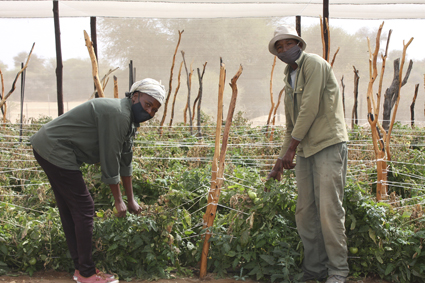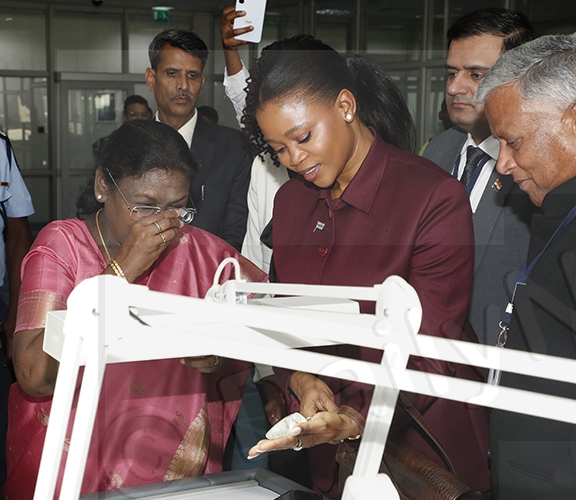Nangos Cluster Garden makes strides
18 Aug 2020
Perseverance, determination and patience have helped Nangos Cluster Garden beneficiaries to turn their small garden into a profitable business.
After two years of struggling, Nangos Cluster Garden in Tobane has finally sprung back to life and supplies diverse vegetables in Tobane and Selebi Phikwe. Situated on the banks of the Motloutse River, the three-hectare garden, was initiated to improve the lives of the 10 selected people living in poverty, through production of fresh produce.
However, it was not easy for the members to achieve their dream due to shortage of water, especially during the dry season, as the garden solely relied on water from Motloutse River.
The garden, which commenced production in 2017, under the poverty eradication programme, started small producing 3.6 tonnes in 2017/2018 and 2.7 tonnes in 2019.
The Chairperson of Nangos Cluster Garden, Mr Lesego Oabile said in an interview that water from Motloutse River was not enough to water the garden, and the Department of Crops built a well to augment the water supply, but it had not addressed the problem as it produced only two cubic metres per day.
“The first years of production were not profitable and in the process, six of our members left for greener pastures,” he said, adding that it was only this year that the four remaining members took the initiative to dig another well, which improved supply.
The garden has now reportedly managed to grow different vegetables to sell to individuals, schools and NAPRO, a vegetable processing plant in Selebi Phikwe.
“We supply NAPRO with onions, tomatoes, beetroots, cabbage and carrots,” he said.
This effort has been commended by the group secretary, Ms Mojadi Totanang who added that the garden had made some strides in horticulture production.
Initially we only sold vegetables to individuals in Tobane village, but we have since increased production to supply small businesses and individuals as well as primary schools in Tobane and Selebi Phikwe, she said.
“We can see some light at the end of the tunnel, we are gradually overcoming our challenges and very soon, we will connect electricity to power the horticulture production,” she added.
She said with the P2m funding from the Poverty Eradication Programme, the team managed to connect drip pipes, put up a net shade and laid some water pipes from the river to the reservoir.
“We managed to go this far because of the support from the poverty eradication office under the District Commissioner in Selebi Phikwe. We thank the government for transforming our lives for the better,” said Ms Totanang.
Nangos cluster garden has so far recruited four employees to assist in planting and harvesting.
She said profits from the cluster garden had enabled them to open a wielding workshop in Palapye, where they make and sell window frames.
“We have also employed four people in Palapye to help us,” Ms Totanang said, adding that the business was also doing well, with window frames sold in Palapye, Selebi Phikwe and surrounding villages. ENDS
Source : BOPA
Author : Kgotsofalang Botsang
Location : TOBANE
Event : Interview
Date : 18 Aug 2020






